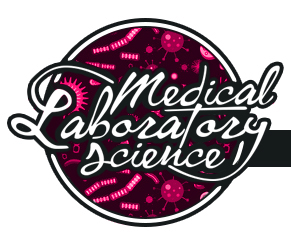|









 |
Immunohematology / Blood Banking
Immunohematology or known as blood banking, as a defined term can be broken
into two components: “immuno” is related to immune response and “hematology” is the study of blood. This is the area of laboratory medicine dealing with preparing blood and blood components for transfusion as well as selection of appropriate, compatible components for transfusion. Immunohematologists study how red blood cells react to foreign blood cells. This allows them to develop safer and more reliable methodologies for blood and also gives them insight into several blood-related diseases that involve the interaction between antibodies and antigens.
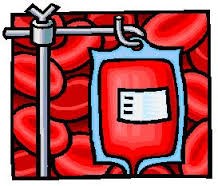 Blood Components
Blood Components
Normally, 7-8% of human body weight is from blood. In adults, this amounts to 4.5-6 quarts of blood. This essential fluid carries out the critical functions of transporting oxygen and nutrients to our cells and getting rid of carbon dioxide, ammonia, and other waste products. In addition, it plays a vital role in our immune system and in maintaining a relatively constant body temperature. Blood is a highly specialized tissue composed of more than 4,000 different kinds of components. Four of the most important ones are red cells, white cells, platelets, and plasma. All humans produce these blood components--there are no population or regional differences.
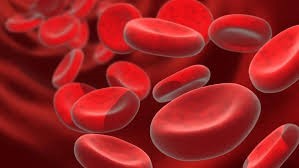 Blood Transfusion
Blood Transfusion
A blood transfusion is a routine medical procedure that can be lifesaving. During a blood transfusion, donated blood is added to your own blood. A blood transfusion may also be done to supplement various components of your blood with donated blood products. In some cases, a blood transfusion is done with blood that you've donated ahead of time before you undergo elective surgery. During a typical blood transfusion, certain parts of blood are delivered through an intravenous (IV) line that's placed in one of the veins in your arm. A blood transfusion usually takes one to four hours, though in an emergency it can be done much faster. A blood transfusion boosts blood levels that are low, either because your body isn't making enough or you've lost blood owing to surgery, injury or disease.
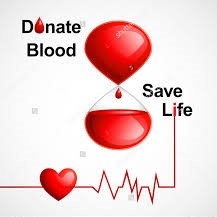 Blood Typing
Blood Typing
Blood typing or cross matching is a method to tell what specific type of blood you have. What type you have depends on whether or not there are certain proteins, called antigens, on your red blood cells. Blood is often grouped according to the ABO blood typing system. Your blood type (or blood group) depends on the types that are been passed down to you from your parents.This method breaks blood types down into four types:
- Type A
- Type B
- Type AB
- Type 0
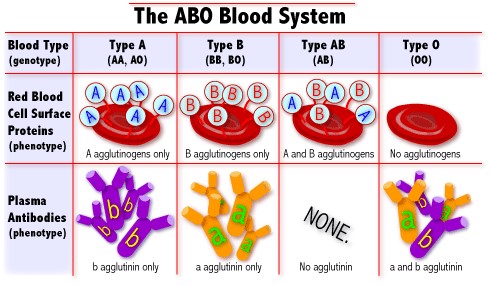
|
|
